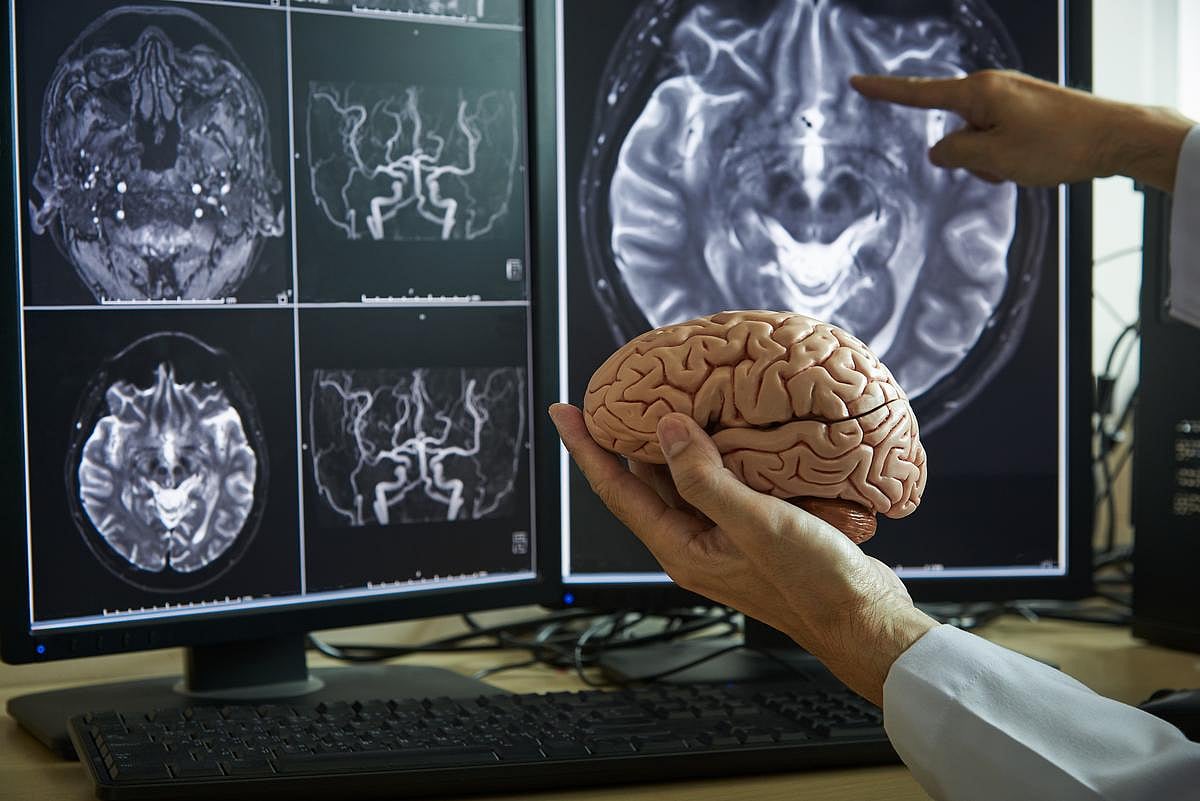Get Healthy!

- Dennis Thompson
- Posted November 27, 2024
Scientists Find Way to Deliver Medicines Across Brain's Protective Barrier
The blood-brain barrier is a natural membrane that protects your brain from toxins and germs.
Unfortunately, this barrier also hampers the delivery of important medicines and therapies into the brain.
But researchers now think they’ve figured out a way to get drugs past the blood-brain barrier.
A Mount Sinai research team delivered genetic therapies into the brains of mice by taking advantage of a natural transport function of cells, researchers report in the journal Nature Biotechnology.
The therapies successfully reduced the activity of harmful genes in lab mouse brains that contribute to ALS, Alzheimer’s disease and dementia, researchers said.
“The blood-brain barrier is an essential defense mechanism, but it also presents a significant challenge for delivering drugs to the brain,” senior researcher Yizhou Dong, professor of immunology and immunotherapy with the Icahn School of Medicine at Mount Sinai, said in a news release.
The new technique, called the blood-brain barrier-crossing conjugate (BCC) system, “breaks this barrier,” Dong said, allowing medications “to reach the central nervous system safely and efficiently.”
The blood-brain barrier is a tight layer of cells that line the inner surfaces of blood vessels inside the brain, according to the Cleveland Clinic.
The barrier filters out larger molecules that might otherwise enter the brain through the bloodstream. This keeps bacteria, viruses and toxic substances from invading the brain, but also makes it tough to deliver medications into the brain.
The new technique involves a process called transcytosis, in which cells transport substances through themselves. The substance is engulfed by the cell, moved through its interior, and then released on the other side.
Researchers were able to get gene-based drugs injected into the bloodstream of mice by linking the medication to a compound called BCC10, their paper says.
The BCC10 compound uses transcytosis to prompt cells in the blood-brain barrier to transport the drugs across the barrier from within, researchers said.
The treatment was well-tolerated in the mice, causing little or no damage to any major organs, researchers said.
“Our platform could potentially solve one of the biggest hurdles in brain research -- getting large therapeutic molecules past the blood-brain barrier safely and efficiently,” senior researcher Dr. Eric Nestler, director of the Friedman Brain Institute and dean for academic affairs at Icahn Mount Sinai, said in a news release. “This development has the potential to advance treatments for a broad range of brain diseases.”
Researchers next plan to test their BCC system on larger animals, to validate its function and develop its potential to treat disease.
More information
The Cleveland Clinic has more on the blood-brain barrier.
SOURCE: Mount Sinai, news release, Nov. 25, 2024

